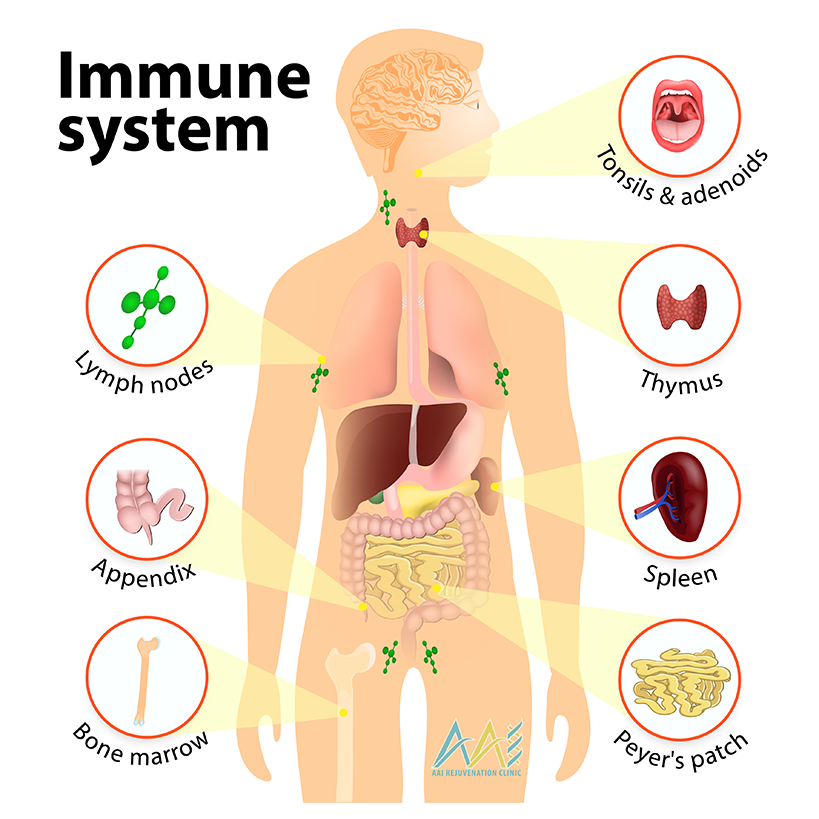|
The immune system is responsible for eliminating antigens from the body.
Instead of being made up of several organs, the power of this system lies mostly in cells.
The key cells are known as B cells and T cells. Both types of cells originate in bone marrow. After fully developing, these cells gather in the lymph nodes and spleen. Antigens, when in the body, are presented to T cells. The T cells then release hormones and cause B cells to develop. B cells then produce antibodies that "lock in" to the antigens and cause them to be harmless. The immune system keeps us from getting sick. On the occasion that we become sick, it kills antibodies and ultimately heals us. Without it, sicknesses that only take most humans a few days to get over would kill us. Because of this, the immune system is arguably one of the most important systems in the body. |
 |